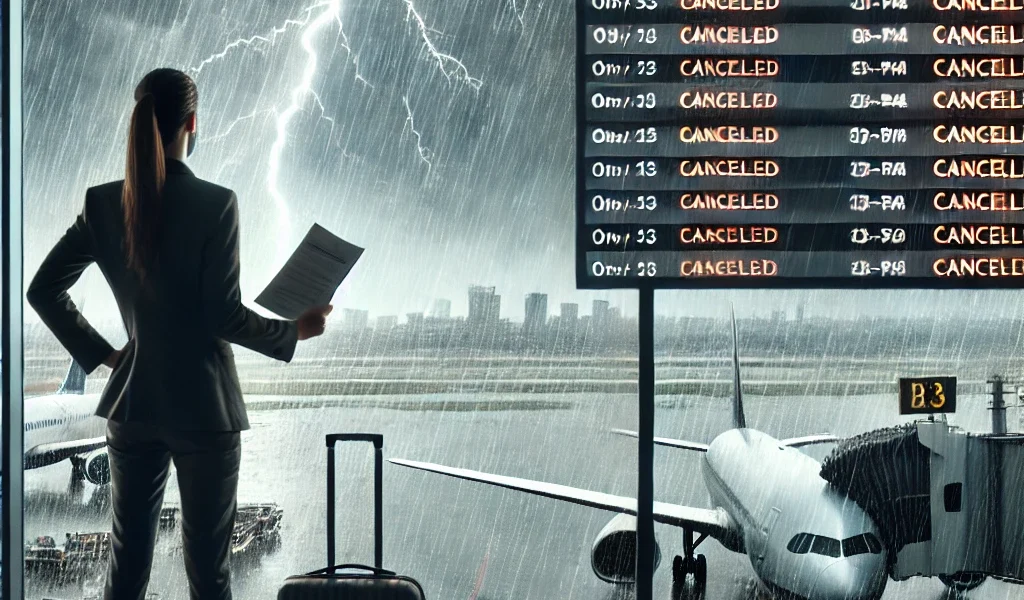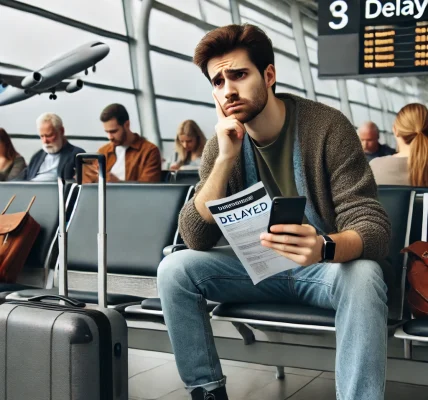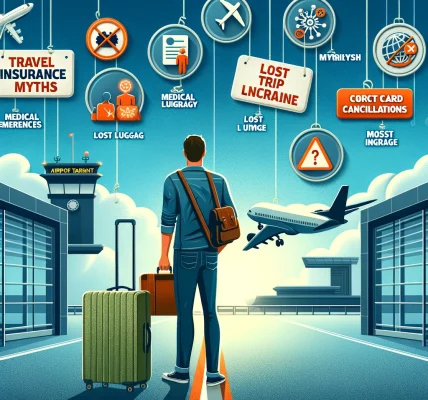Introduction
Imagine this: you’ve booked a dream vacation, packed your bags, and are ready to go. But then, a hurricane, earthquake, or severe snowstorm disrupts your travel plans. Flights are canceled, hotels are closed, and your itinerary is ruined.
This is where travel insurance can become a lifesaver. But does it cover natural disasters and weather-related cancellations? The answer depends on the type of coverage you choose and the circumstances of the disruption.
In this DIY guide, we’ll explore:
- How travel insurance covers weather-related disruptions.
- What types of coverage protect you from natural disasters.
- How to file a claim if your trip is affected by extreme weather.
Let’s dive in! 🌪️✈️
1. Does Travel Insurance Cover Weather-Related Cancellations?
Most comprehensive travel insurance policies provide some level of protection against weather-related issues. However, coverage varies based on your plan and the specific circumstances of the delay or cancellation.
✅ When Travel Insurance Covers Weather-Related Cancellations:
- Your flight is canceled or delayed due to a hurricane, blizzard, or extreme weather.
- The hotel, resort, or rental property you booked is uninhabitable due to storm damage.
- A mandatory evacuation order forces you to leave your destination.
- Your cruise is rerouted or canceled due to a storm.
- Your tour operator cancels the trip due to severe weather conditions.
❌ When Travel Insurance Does NOT Cover Weather-Related Cancellations:
- You cancel your trip because you’re worried about bad weather, but no official warnings are issued.
- Your destination experiences mild rain or cloudy weather but remains open.
- The weather was already forecasted when you purchased insurance (e.g., booking a trip while a hurricane is forming).
- Your airline offers you a refund or reschedule option—insurance won’t pay extra.
💡 Pro Tip: Travel insurance doesn’t cover cancellations due to personal preferences. If you cancel just because you “don’t feel like going,” your policy won’t reimburse you.
2. What Types of Travel Insurance Cover Natural Disasters?
When selecting a travel insurance policy, ensure it includes protection against natural disasters. Here are the most important types of coverage:
🏆 1. Trip Cancellation Insurance
What It Covers: Reimburses prepaid, non-refundable expenses if your trip is canceled due to covered weather-related events.
- Example: A hurricane forces flight cancellations and makes your destination uninhabitable.
- Key Tip: Check if the policy covers “weather-related cancellations by the airline or tour operator.”
⏳ 2. Trip Interruption Insurance
What It Covers: Reimburses costs if you must cut your trip short due to severe weather or a natural disaster.
- Example: You’re on vacation, and a wildfire forces you to evacuate.
- Key Tip: Some policies cover expenses for alternative accommodations and new flights.
🚨 3. Travel Delay Coverage
What It Covers: Covers hotel, meal, and transportation costs if weather delays your travel for a specified period (usually 6+ hours).
- Example: A snowstorm delays your flight overnight, requiring a hotel stay.
- Key Tip: Each policy sets a minimum delay time before coverage applies.
🔄 4. Cancel for Any Reason (CFAR) Insurance
What It Covers: Allows you to cancel your trip for any reason and get a partial refund (usually 50-75% of trip costs).
- Example: You’re worried about an approaching hurricane and want to cancel in advance.
- Key Tip: CFAR must be purchased within a few weeks of booking your trip.
💡 Pro Tip: Standard travel insurance won’t cover cancellations for fear of bad weather, so CFAR is your best bet if you want full flexibility.
3. How to File a Travel Insurance Claim for Weather-Related Disruptions
To successfully claim reimbursement for trip cancellations or delays, follow these steps:
📌 Step 1: Contact Your Insurance Provider
- Report the disruption immediately and ask about the claim process.
- Many insurers have a 24/7 helpline to assist travelers in emergencies.
📌 Step 2: Gather Documentation
- Airline Cancellation Notice: Proof that your flight was canceled due to weather.
- Hotel or Tour Cancellation Notice: If your accommodations become uninhabitable.
- Evacuation Orders: If you were forced to leave your destination.
- Receipts for Expenses: If claiming meals, hotels, or transportation during delays.
📌 Step 3: Submit Your Claim
- Most insurance companies require claims to be filed within 30-60 days of the incident.
- Ensure you include all necessary documents to avoid delays in reimbursement.
💡 Pro Tip: Always read your policy’s fine print to understand what’s required for a claim.
4. Travel Insurance vs. Airline & Hotel Policies: What’s the Difference?
Some travelers assume that airlines and hotels will compensate them for weather-related cancellations. While this is true in some cases, travel insurance offers broader protection.
| Factor | Airline & Hotel Policies | Travel Insurance |
|---|---|---|
| Covers hotel if flight is canceled? | ❌ No | ✅ Yes |
| Covers flight rebooking due to weather? | ✅ Sometimes | ✅ Yes |
| Covers alternative accommodations after a disaster? | ❌ No | ✅ Yes |
| Covers full trip cancellation due to hurricane? | ❌ No | ✅ Yes |
💡 Key Takeaway: While airlines may offer some assistance, only travel insurance guarantees full protection.
Final Thoughts: Is Travel Insurance Worth It for Natural Disasters?
Absolutely! Weather is unpredictable, and a strong travel insurance policy can prevent financial loss if disaster strikes.
✈️ Before You Buy, Ask Yourself:
✔ Does the policy cover trip cancellations due to severe weather? ✔ What are the claim limits for weather-related delays? ✔ Is CFAR coverage available for added flexibility? ✔ Does it offer 24/7 emergency assistance?



